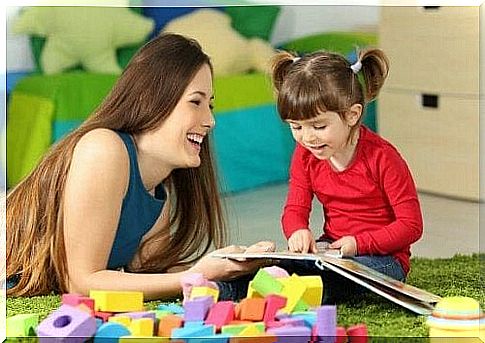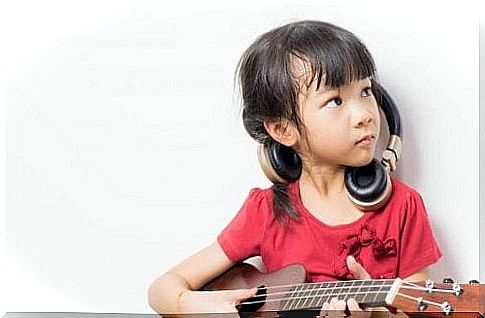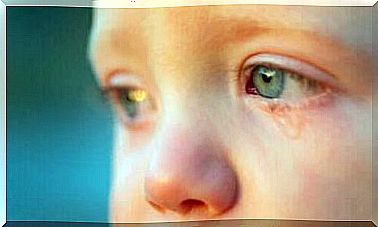What Are The Best Stages Of Learning?

Parents often wonder what are the best stages in life for motor, cognitive and emotional learning in children. In this article you will find everything you need to know about this topic.
When you see children in everyday life and when they play, you see how fast they learn. This is because they can imitate the information they are constantly absorbing through all their senses.
Of course, this topic is not new. In fact, this has been studied in detail, for example in neuroscience. The connections in children’s brains have been studied on many occasions, and researchers have come to fantastic conclusions. Below we will share the results.
With the help of this knowledge, you can stimulate your children’s learning so that they can better reach their potential.
What are the best stages of learning?
To explain what characterizes the best stages of learning , a concept called brain plasticity has been developed in neuropediatrics.
Brain plasticity is about children’s senses acting like a sponge. This means that they absorb knowledge, from the time they are a few months old, and up to about six years of age.
They absorb all the information they see around them. They also do it very quickly and naturally.
During this time , children go through a sensitive learning period. This is a stage that you really should make the most of, because it is during this period that children can take in and retain the most knowledge.
This capacity covers areas such as musical and mathematical skills and motor coordination skills. It is also about emotional skills, the development of memory related to visual abilities and, of course, language development.

What should children learn based on their age?
We have found that between a few months of age and six years of age, children have an extraordinary capacity for learning. But how much they retain from what they have learned also depends on age.
From birth to two years of age
In the brain, there is a subcortical structure called the amygdala, which has several connections. This allows us to integrate emotions, memories and moods. Therefore, it is important when our emotional behavior is established.
This is why how children are treated between birth and two years of age causes them to develop certain behaviors.
For example, they may either develop an avoidant attachment or empathy towards others. They may develop trust, respect for authorities or fear.
Note that healthy bonds and adequate emotional intelligence affect all aspects of social development. Therefore, parents should think about how they treat their children, especially when they are at this age.
From a few months of age up to five years of age
During this period , children’s brains work to create connections between what they see, its use and meaning.
This is entirely thanks to children learning through what they see. Seeing light, colors, different shapes and distances therefore helps them to later develop their motor coordination ability.
From eight months to eight years of age
At the age of eight months , children begin to try to mimic the sounds they hear from their surroundings. In this way, they try to achieve a more direct communication with their parents or other people in their vicinity.
Of course, they start by chatting, and mimicking small sounds. Around the age of three, they achieve the syntactic ability to form sentences and place words in the correct order.
From there and up to the age of eight, they consolidate the dialect and vocabulary they learn from their parents and in school. Therefore, it is important that you use correct language when talking to your children. They also need to learn new languages, and learn to love reading.

Between one and eight years of age
It is also believed that this period is an extra special stage in life to learn to play musical instruments. When you perform activities that require motor coordination , the same areas that are connected to learning mathematics are activated.
Therefore , children also develop the ability to think spatially. This is one of the most important skills that children need to be able to play musical instruments.
Finally, remember that parents are guides and partners for their children. With their help, they can acquire a wider range of skills and good self-control.








